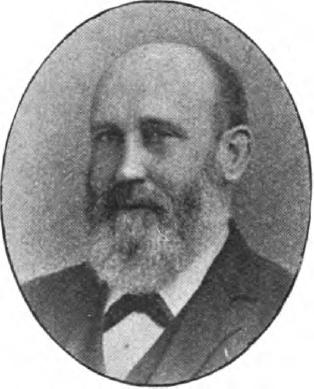William Johnson (Liberal-Labour Politician) on:
[Wikipedia]
[Google]
[Amazon]
 William Johnson MBE (1849 – 20 July 1919) was an English
William Johnson MBE (1849 – 20 July 1919) was an English
coal miner
Coal mining is the process of extracting coal from the ground. Coal is valued for its energy content and since the 1880s has been widely used to generate electricity. Steel and cement industries use coal as a fuel for extraction of iron from ...
, trade unionist
A trade union (labor union in American English), often simply referred to as a union, is an organization of workers intent on "maintaining or improving the conditions of their employment", ch. I such as attaining better wages and benefits (s ...
and Liberal-Labour (Lib-Lab) politician from Warwickshire
Warwickshire (; abbreviated Warks) is a county in the West Midlands region of England. The county town is Warwick, and the largest town is Nuneaton. The county is famous for being the birthplace of William Shakespeare at Stratford-upon-Av ...
. He sat in the House of Commons
The House of Commons is the name for the elected lower house of the bicameral parliaments of the United Kingdom and Canada. In both of these countries, the Commons holds much more legislative power than the nominally upper house of parliament. T ...
from 1906 to 1918.
Early life
Johnson was born inChilvers Coton
Chilvers Coton is an area of the town of Nuneaton in Warwickshire, England, around one mile south of the town centre.
Chilvers Coton was historically a village and civil parish in its own right and was mentioned in the Domesday Book of 1086 as � ...
, which was then a small village near the town of Nuneaton in Warwickshire, the youngest son of John Johnson, a collier. He was educated at Collycroft School, and began work young, in both factories and collieries.
Career
In 1885 Johnson became secretary to the Warwickshire Miners Association. After serving on several local bodies he was elected toWarwickshire County Council
Warwickshire County Council is the county council that governs the non-metropolitan county of Warwickshire in England.
Its headquarters are located at Shire Hall, Market Square, in centre of the county town of Warwick. Politically the county is ...
for Bedworth, becoming an alderman
An alderman is a member of a municipal assembly or council in many jurisdictions founded upon English law. The term may be titular, denoting a high-ranking member of a borough or county council, a council member chosen by the elected members t ...
by 1916, by which times he was also chairman of Bedworth Parish Council, treasurer of the Midland Miners Federation, a Free and Accepted Mason of the Grand Lodge of England
The United Grand Lodge of England (UGLE) is the governing Masonic lodge for the majority of freemasons in England, Wales and the Commonwealth of Nations. Claiming descent from the Masonic grand lodge formed 24 June 1717 at the Goose & Gridiron ...
, a Justice of the Peace (J.P.) for Warwickshire, and a governor of the Nicholas Chamberlain School Foundation.
He first stood for election to Parliament
In modern politics, and history, a parliament is a legislative body of government. Generally, a modern parliament has three functions: representing the electorate, making laws, and overseeing the government via hearings and inquiries. Th ...
at the 1892 general election, when he unsuccessfully contested the Tamworth division of Warwickshire as a Lib-Lab candidate, where he lost by a large margin of 31% of the votes to the Conservative Party MP Philip Muntz. He was unsuccessful again at the 1900 general election, when he contested the Nuneaton division, but by a narrower margin of 12.8%.Craig, page 408 He won the seat on his attempt, at the 1906 general election, and remained the Member of Parliament
A member of parliament (MP) is the representative in parliament of the people who live in their electoral district. In many countries with bicameral parliaments, this term refers only to members of the lower house since upper house members o ...
(MP) for Nuneaton until he retired from Parliament at the 1918 general election.
Although first elected as a Liberal party (Lib-Lab) MP, Johnson was required to take the Labour party whip in 1909. This was because of a decision by the Miners Federation of Great Britain, to affiliate to the Labour party. This decision was not popular with the Warwickshire Miners Association or Johnson's local Constituency Party, which refused to affiliate to the Labour party. In 1914, Labour party HQ in London decided to set up a rival Constituency party in Nuneaton and Johnson continued to sit in parliament as a Liberal.
Personal life
In 1868, Johnson married Priscilla Davenport, who died in 1906. He married again in 1908, to Anne, the widow of W. Copson of Leicester.References
External links
* {{DEFAULTSORT:Johnson, William 1849 births 1919 deaths Trade unionists from Warwickshire Liberal-Labour (UK) MPs Liberal Party (UK) MPs for English constituencies Labour Party (UK) MPs for English constituencies Miners' Federation of Great Britain-sponsored MPs UK MPs 1906–1910 UK MPs 1910 UK MPs 1910–1918 Members of Warwickshire County Council People from Nuneaton British coal miners English miners